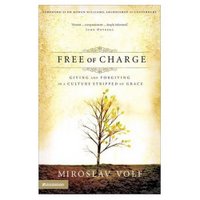Theology Goes to the Movies

Clive Marsh (2007) Theology Goes to the Movies: An Introduction to Critical Christian Thinking. London: Routledge.
- Very happy to have received this book in the mail this morning, which is fresh from the press just earlier this month.
- The author, while being the Faith and Order Secretary of the Methodist Church in Britain as well as teaching theology somewhere, is one of the pioneers in the study of theology and cinema in the UK who co-edited the first major British publication in this field (Explorations in Film and Theology) ten years ago.
- Looks like a systematic theology using the contemporary cinema as a resource. Interesting approach, and possibly responding to David Jasper's reservation toward the whole field a decade ago.






